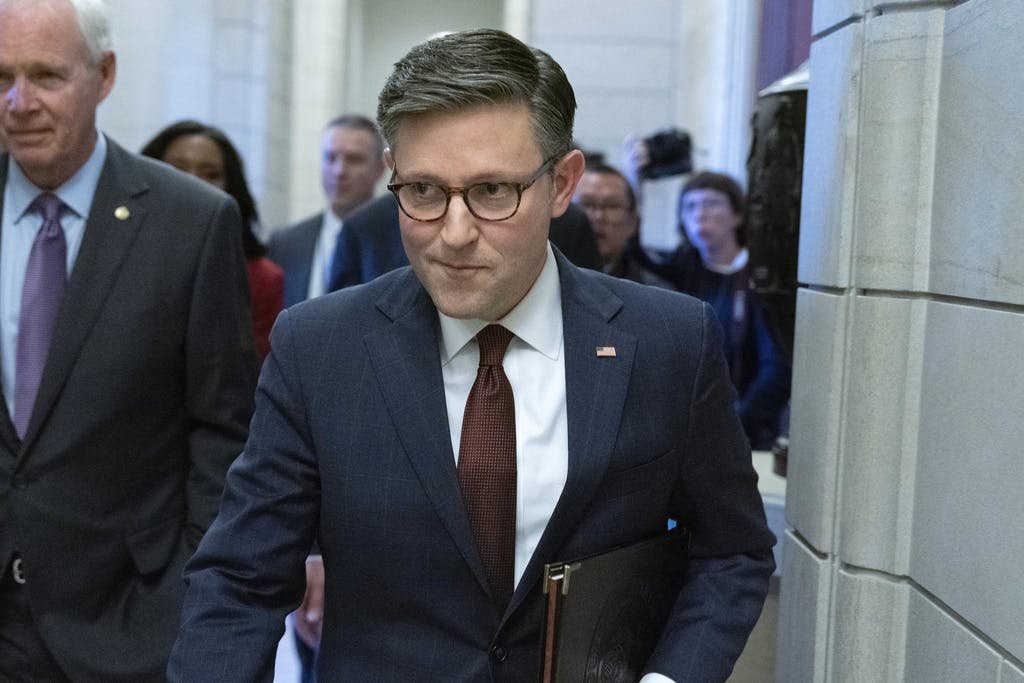Congress Barrels Toward Government Shutdown as House Republicans Fail To Provide Path Forward
The government is due to shut down at the end of the day on Thursday.

A partial government shutdown is growing increasingly likely as Congress fails to offer any path forward on spending. Speaker Johnson has said time and again that he would not support any kind of short-term deal, but that may be the only option left as the deadline nears.
On Sunday, Mr. Johnson’s office failed to release the text of any of the remaining five spending bills that are needed to fully fund the government. There are 12 bills in total.
In January, Congress passed what has been called a “laddered continuing resolution” which funded some government programs through March 1 and others through March 8. The March 1 deadline is set for four of the 12 appropriations bills, including the energy and water bill, the transportation and housing bill, the agriculture bill, and the military construction and veterans’ affairs bill.
Mr. Johnson has said in the past that he does not want another short-term spending agreement, but he has broken that promise before. When he was elected speaker in October, he promised not to put a short-term deal on the floor before a November shutdown. He later reneged on that promise.
He then said he would not extend government funding at current levels before a January shutdown. He again reneged on that pledge, leading to the current shutdown deadline.
His biggest opponent in the funding fight is Mr. Johnson’s own right flank. The House Freedom Caucus says they will not vote for any spending agreements without a number of policy changes, not just spending cuts.
Those so-called “policy riders” are provisions that would never be acceptable to the Democratic-controlled Senate or the White House, and it’s unclear if they would even pass the House. Those policies include defunding the World Health Organization, reducing the homeland security secretary’s salary to $0, and defunding all diversity, equity, and inclusion offices, among other things.
“With the expiration of government funding rapidly approaching, negotiations continue behind closed doors and as a result, we anticipate text for likely omnibus legislation that we fear will be released at the last moment before being rushed to the floor for a vote,” the Freedom Caucus wrote in a letter to Mr. Johnson.
“House Republicans should not be left in the dark on the status of the spending levels and hard-fought policy provisions,” they continued.
The Freedom Caucus also floated a more radical solution to the spending problem. As part of 2023’s Fiscal Responsibility Act, there is a guarantee that if Congress fails to pass its 12 spending bills by January 1 the year after the bills are due, it would trigger an automatic one percent budget cut across the board.
Under recent continuing resolutions, that provision has been scrapped as Mr. Johnson promised to finish his spending bills. Now, the Freedom Caucus says it might be better to just let a one percent cut take hold if they don’t win any policy riders.
“If we are not going to secure significant policy changes or even keep spending below the caps adopted by bipartisan majorities less than one year ago, why would we proceed when we could instead pass a year-long funding resolution that would save Americans $100 billion in year one?” they asked in their letter to the speaker.

